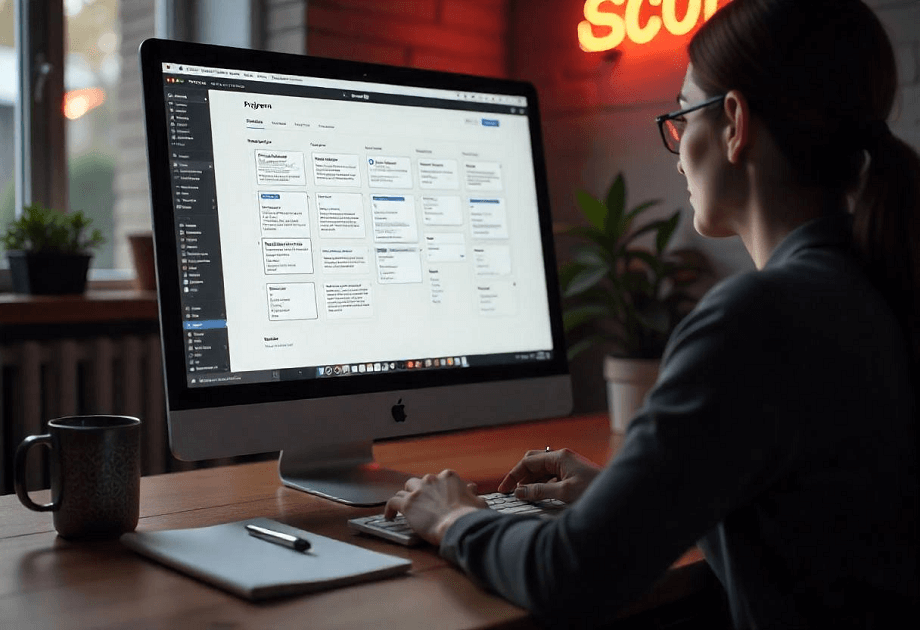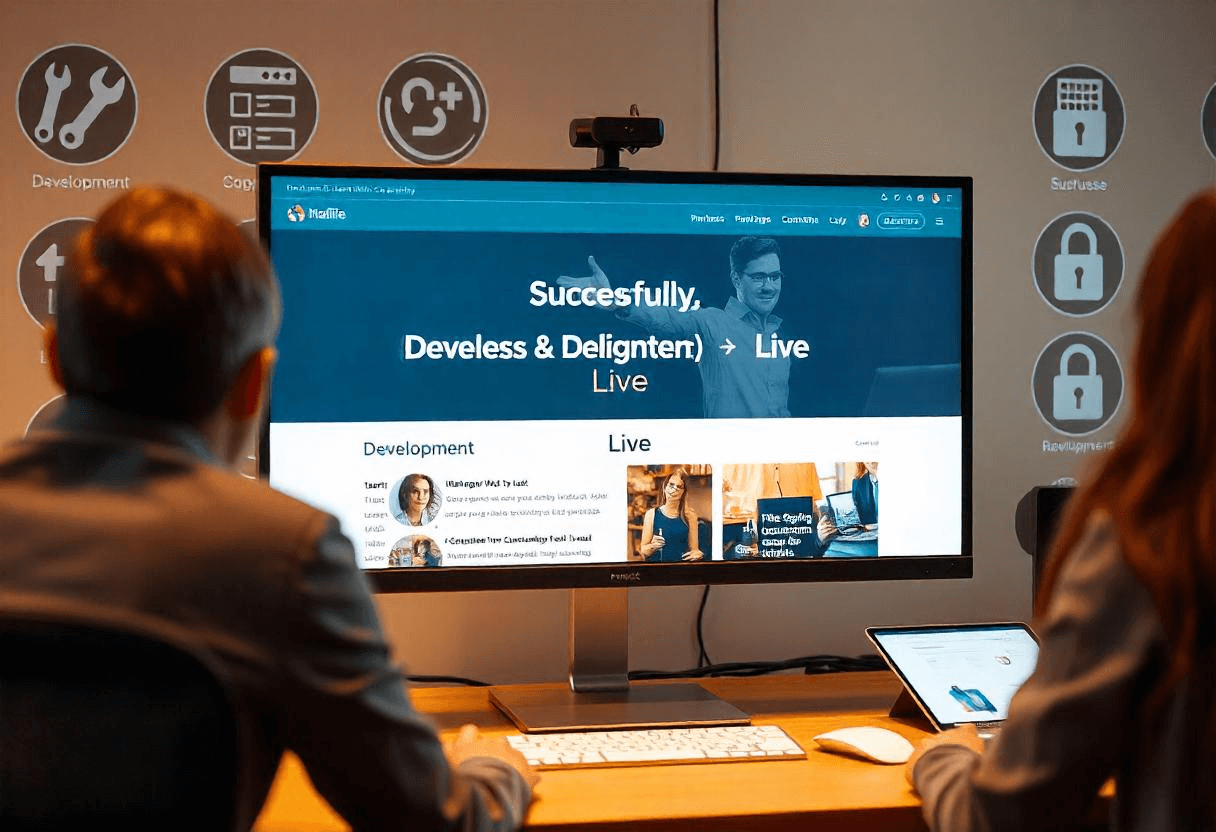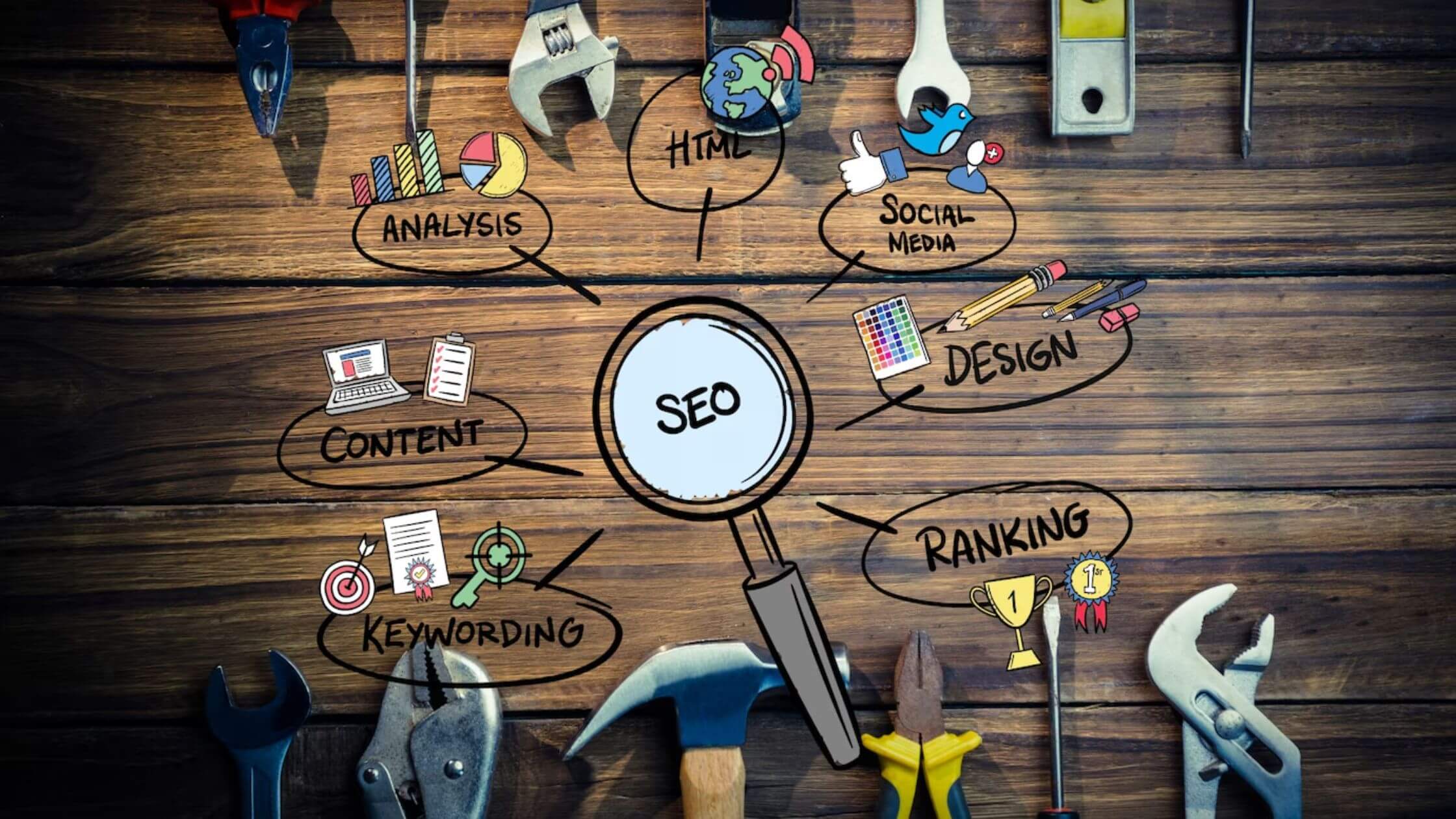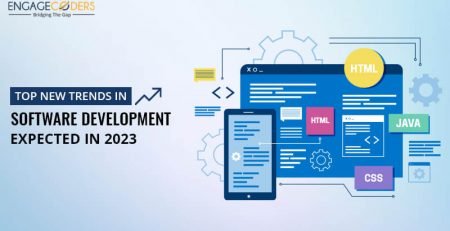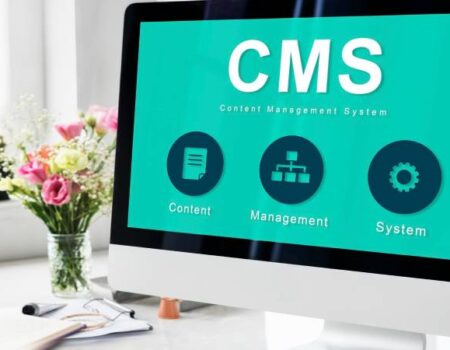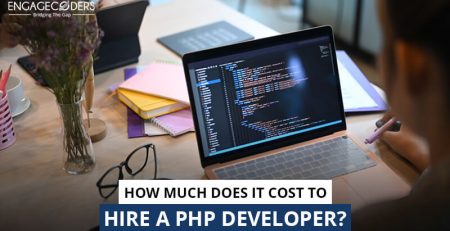How much does it cost to build a website in 2025?
If you’re planning to build a website, you’re likely wondering about the website development cost in 2025. With prices varying widely, it’s not always clear what’s reasonable. The cost to build a website may range from $500 for a simple site to $50,000 or more for a fully customized platform, depending on the features and functionality required. Understanding the factors that influence these costs can help you plan your budget more effectively.
In this blog, we’ll break down the different cost ranges and what influences them to help you make an informed decision for your website project.
Contact a reputed website design and development company!
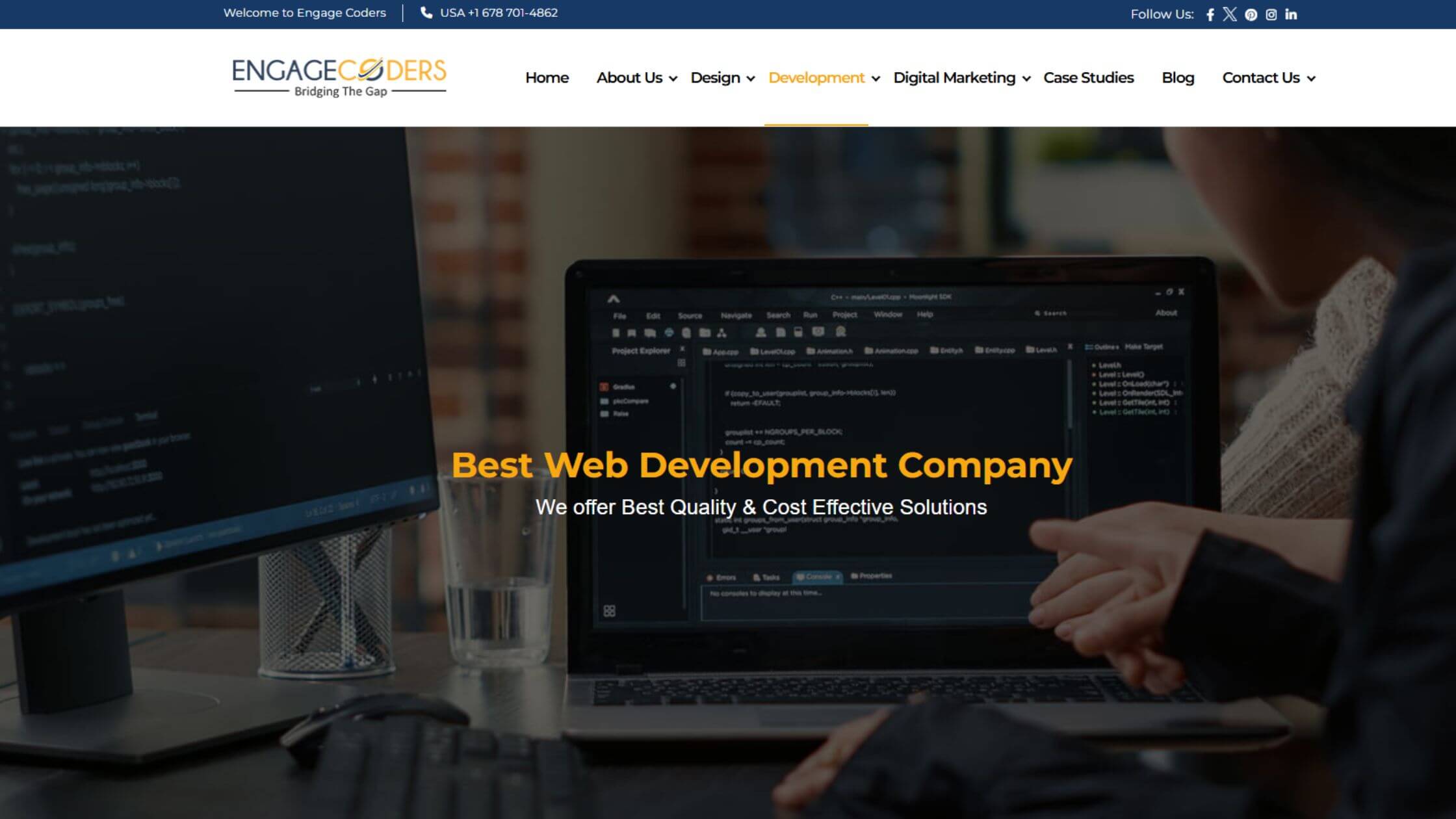
Engage Coders is a leading website design and development company in USA, known for our expertise in creating dynamic, user-friendly websites tailored to your business needs. If you’re a startup looking to establish your online presence or an established brand seeking a site redesign, we help you build seamless, high-performance websites. Our services include custom web design, responsive development, and e-commerce solutions, ensuring a polished, professional online experience. With a focus on functionality and aesthetics, we help you stand out in the digital world.
Start building your dream website with Engage Coders!
Building your dream website starts with the right partner, and Engage Coders is here to bring your vision to life. A well-designed website not only boosts your brand’s visibility and credibility but also drives conversions, helping you reach and engage your audience effectively. Whether you’re looking for a stunning design, seamless functionality, or a user-friendly experience, Engage Coders has the expertise to deliver.
Partner with our Digital Marketing Agency
Ask Engage Coders to create a comprehensive and inclusive digital marketing plan that takes your business to new heights.
Here’s how we can help you build your dream website efficiently:
Understanding Client Needs and Goals
At Engage Coders, the foundation of every successful website starts with a deep understanding of your business requirements, target audience, and objectives. Our team works closely with you to gather crucial insights, ensuring that your website aligns with your vision. We conduct comprehensive market research to ensure your website meets industry standards while remaining competitive. This phase includes defining your website’s structure, key features, and design preferences to create a tailored solution that fulfills your unique goals.
Planning and Wireframing
Once we’ve understood your needs, Engage Coders moves forward with creating a strategic site plan that addresses every aspect of your website. Wireframes and prototypes play a pivotal role here, allowing us to map out the user flow – ensuring ease of navigation and functionality. This step ensures that your website not only looks great but functions smoothly for your visitors. We pay attention to the smallest details to make sure the design is intuitive and efficient.
Website Development and Optimization
At this stage, Engage Coders’ development team leverages modern coding standards to build a website that is fast, secure, and highly efficient. We use the latest technologies to ensure that every feature works as intended, with performance as a priority. During the development process, we integrate SEO best practices to improve your site’s search engine visibility right from the start. Thorough testing processes, including performance, security, and user experience checks, ensure the website operates flawlessly across all devices and platforms.
Deployment and Ongoing Support
After your website is ready, Engage Coders handles the seamless launch and deployment process, ensuring everything runs smoothly. Our work doesn’t end there—post-launch support and maintenance are key to long-term success. We provide ongoing SEO optimization, content updates, and security monitoring to keep your website at peak performance. Our team is always available to assist with any adjustments or improvements, ensuring your website remains effective and competitive.
Factors That Impact Website Development Costs
When planning for website development, it’s essential to understand the factors that contribute to the overall cost. A website is more than just a digital presence. It’s an investment that impacts your business’s functionality, user experience, and success. The cost of developing a website can vary widely depending on several key elements, such as the complexity of the design, the functionality required, and the level of customization.
| Website Type | Elements | Cost-Range |
|---|---|---|
| Small Business Website | Basic design, limited pages | $500 to $5,000 |
| Corporate Website | Custom UI/UX, integrations | $5,000 to $15,000 |
| E-commerce Website | Shopping cart, payment gateways | $10,000 to $50,000 |
| Custom Web Applications | Advanced functionalities | $20,000 to $100,000+ |
Let’s explore the key factors that influence website development costs, helping you make informed decisions about your budget and expectations:
Type of Website
The type of website you’re looking to build plays a significant role in determining its development cost. Each website type comes with unique features, complexity, and requirements, which can affect the overall price. For instance:
- Basic Blogs: A simple blog with minimal design and features typically costs between $500 and $2,000. This is ideal for personal projects or small businesses looking for a basic online presence.
- Business Websites: A standard business website, including a homepage, about us, services, and contact pages, usually ranges from $2,000 to $10,000. The price depends on the design, custom features, and functionality needed.
- eCommerce Stores: If you’re looking to sell products online, an eCommerce website generally starts at $5,000 to $15,000, depending on the size of the store, payment gateway integration, and other advanced features like product search and inventory management.
- SaaS Platforms: For more complex platforms like Software as a Service (SaaS), costs can easily exceed $50,000. These websites require advanced functionality, user accounts, and subscription management, which increases both the development time and cost.
Each website type varies in scope, and the price reflects the level of customization and the features required. Understanding these differences helps you budget accordingly while ensuring your website meets your needs.
Design Complexity & Customization
When it comes to website development, the complexity of the design and the level of customization required can greatly influence the cost. Custom-designed websites are typically more expensive than those built using pre-made templates, as they require more time, effort, and expertise from designers and developers.
- Custom Designs: If you choose a fully customized design, you’ll receive a unique and tailored experience that reflects your brand’s identity. Factors such as bespoke UI/UX design, custom animations, and high-quality branding elements all contribute to the increased cost. Custom designs are ideal for businesses seeking a distinct look and feel, and they generally range from $5,000 to $20,000 or more depending on the complexity and features.
- Template-Based Websites: On the other hand, template-based websites are more cost-effective and quicker to build. With pre-designed layouts, your website can be up and running in a fraction of the time. These typically cost between $500 and $3,000, depending on the template’s customization and additional features.
The level of customization you choose affects both the design and development process. A custom-built website allows for greater flexibility and can create a stronger brand presence, while a template-based website provides a more affordable, quicker solution for businesses with simpler needs.
Ultimately, the choice depends on your business goals, budget, and desired user experience.
Website Features & Functionality
The features and functionality you want to include on your website significantly impact its development cost. Every additional feature requires more time, expertise, and resources to implement, which directly affects pricing. For example, features like eCommerce functionality, booking systems, and interactive elements can increase the overall complexity of the website and its development time.
- eCommerce Functionality: Adding eCommerce features such as product catalogs, shopping carts, and secure payment gateways can raise the budget of a website significantly. Basic eCommerce functionality might start at $5,000 to $10,000, but a more advanced store with multiple payment options, user accounts, and inventory management could push the budget to $15,000 or higher.
- Booking Systems: For businesses in the hospitality, service, or event industries, integrating a booking or reservation system will add to the budget. The development of a custom booking system generally starts at around $3,000 to $8,000, depending on the complexity of the system (e.g., calendar integration, availability checks, notifications).
- Interactive Elements: Adding interactive features such as animations, dynamic content, or real-time updates also contributes to the overall budget. Simple interactive elements might add $1,000 to $5,000 to the budget, while more complex features like custom animations or user dashboards could range $10,000 or more.
Other common features that can affect pricing include:
- Chatbots: Automating customer interactions through a chatbot can range from $1,000 to $5,000, depending on its complexity and integration with existing systems.
- Payment Gateways: Integrating payment gateways such as PayPal, Stripe, or credit card processors typically costs between $500 and $3,000, depending on the number of integrations and security features required.
These features can enhance user experience and functionality, but they come at an additional charge. It’s essential to plan for the specific features that will support your business goals while staying within your budget.
Development Approach – DIY, Freelancer, or Agency?
When deciding how to approach website development, it’s important to weigh the differences in terms of budget, quality, and scalability between DIY website builders, freelancers, and professional agencies. Each option has its advantages and limitations, and your choice depends on your business needs, budget, and long-term goals.
- DIY Website Builders (Wix, WordPress, etc.):
- Freelancers:
- Professional Agencies:
DIY website builders like Wix or WordPress are the most affordable options, often costing just $100 to $1,000 for basic websites. These platforms allow you to create a website using pre-designed templates, drag-and-drop functionality, and limited customization options. While they’re cost-effective and easy to use, they come with significant limitations in terms of design flexibility, scalability, and advanced features. If you’re looking for a simple, quick online presence without much customization, a DIY builder could be the right choice. However, for businesses aiming to stand out or require advanced functionality, this option may fall short.
Freelancers offer a middle ground between DIY builders and professional agencies. They typically charge $1,000 to $10,000 depending on the complexity of the project and their experience. Freelancers can provide more customized websites and often deliver faster turnaround times. However, the quality and expertise can vary widely depending on the individual. Hiring a freelancer gives you more flexibility and can be a good option for small to mid-sized businesses with specific needs that fall outside the limitations of DIY builders. That said, freelancers may lack the resources to scale or provide ongoing support in the long term.
Professional agencies are the high-end option, typically starting at $5,000 and going upwards to $50,000 or more for more complex websites. Agencies offer the highest level of expertise, experience, and a comprehensive approach, from strategy and design to development, testing, and post-launch support. They have a dedicated team that ensures your website is scalable, functional, and designed to meet your long-term business goals. While more expensive, agencies deliver quality, scalability, and ongoing support, making them ideal for larger businesses, brands aiming for a high-end web presence, or companies with intricate needs like eCommerce, SaaS platforms, or custom features.
In summary, the choice between DIY, freelancers, and agencies boils down to the complexity of your website, your business needs, and your budget.
Maintenance & Hosting Costs
Once your website is live, ongoing maintenance and hosting are crucial to ensure its performance, security, and relevance. A website isn’t a one-time project—it requires regular updates, security checks, and sometimes content updates to remain functional and competitive in your industry. These recurring costs can vary depending on the size, complexity, and functionality of your website.
- Hosting:
- Domain Renewal:
- Security:
- Updates & Bug Fixes:
- Content Management & SEO:
Web hosting is essential for making your website accessible online. Depending on the type of hosting you choose, price can range from $50 to $500 per year for shared hosting, or $500 to $3,000 per year for dedicated servers or managed hosting. Larger websites or those with high traffic volumes will require more robust hosting solutions.
The domain name you register for your website (e.g., www.yourbusiness.com) typically costs $10 to $50 per year. It’s important to renew your domain each year to ensure your website remains active and doesn’t lose its online presence.
Website security is a key component of ongoing maintenance. Investing in an SSL certificate, firewall, and malware protection helps safeguard your site from cyber threats. The price for basic security measures can range from $50 to $500 per year, depending on the level of protection and the hosting provider.
Regular updates for your website’s software, plugins, and themes are essential to maintain security and functionality. Depending on your platform, the range for updates and bug fixes can range from $200 to $2,000 per year. Custom websites or eCommerce platforms may require more frequent updates, increasing the overall budget.
For businesses looking to keep their websites up to date with fresh content, regular SEO work, and performance optimization, ongoing content management may be necessary. This service can charge anywhere from $500 to $5,000 per year, depending on the scope of the content and SEO efforts required to keep the site ranking high on search engines.
Estimated Yearly Expenses:
- Small Website (e.g., personal blog or simple business website):
- Annual charges can range from $300 to $1,000, including basic hosting, domain, and minimal maintenance needs.
- Medium Website (e.g., standard business website or small eCommerce store):
- Expect to pay around $1,500 to $5,000 yearly for hosting, updates, security, and some content management.
- Large Website (e.g., complex eCommerce platform or SaaS site):
Ongoing charges for larger sites can range from $5,000 to $15,000 per year, factoring in hosting, security, frequent updates, content, and SEO management.
Step-by-Step Guide to Planning Your Website Development Budget
Planning your website development budget is a crucial step in ensuring that your project stays on track financially while meeting all your business goals. Understanding the web development costs in 2025 involved, setting realistic expectations, and prioritizing your needs can help you make informed decisions and avoid unexpected expenses down the road.
Let us walk you through the key steps to effectively plan your website development budget:
Step 1 – Define Your Website Goals & Budget
Before diving into the financials of website development, it’s essential to first define the clear goals of your website. Understanding the purpose of your website helps you determine the features, design, and functionality needed to support those objectives. Whether you aim to increase brand awareness, generate leads, or drive eCommerce sales, setting specific goals will directly influence your budget and ensure your website aligns with your business strategy.
Start by considering the following key questions to define your website’s goals and develop an appropriate budget:
- What is the primary purpose of your website?
- Is it for informational purposes, to build brand awareness, or to generate leads or sales?
- What functionality does your website require?
- Do you need basic pages or complex features like eCommerce capabilities, booking systems, or custom applications?
- What level of customization is needed?
- Are you looking for a simple template, or do you require a completely custom design with unique branding?
- Who is your target audience?
- Will your website need to cater to a specific demographic, such as mobile users or international visitors?
- Do you require ongoing content management or updates?
- Will you need help with regular content updates, SEO, or long-term website maintenance?
- What is your timeline for launching the website?
- Are you aiming for a fast launch, or do you have the flexibility for a longer development process?
- What is your ideal ROI for the website?
- How do you want the website to contribute to your business’s bottom line, and how does this impact your spending on features, design, and functionality?
By answering these questions, you can gain a better understanding of the project scope, which will allow you to determine a more accurate budget.
Step 2 – Choose the Right Platform & Technology
Choosing the right platform and technology for your website is a pivotal step in the development process. The platform you select will influence not only the budget and complexity of development but also your website’s flexibility, scalability, and ease of maintenance. Below, we compare the most common website-building options—custom development, content management systems (CMS) like WordPress, Shopify, and Wix, and DIY website builders to help you make an informed decision.
Custom Development
Custom development involves building a website from scratch, tailored specifically to your needs. This approach provides maximum flexibility and control, allowing for a fully personalized design and unique features. However, it is the most expensive option and typically requires a professional development team.
- Cost:
- Flexibility & Scalability:
- Best For:
Custom development can range from $5,000 to $50,000 or more, depending on the complexity of the website and the expertise required.
Highly flexible, but requires ongoing development efforts for future updates or changes. Ideal for businesses with unique needs or large-scale projects.
Companies looking for a completely tailored website with advanced features and custom functionality.
Content Management Systems (CMS)
A CMS like WordPress, Shopify, or Wix offers a balance between customization and ease of use. These platforms provide pre-built templates, plugins, and themes that can be customized to fit your business needs. They are generally more affordable than custom development and allow for quicker development.
WordPress
Starting at $500 to $5,000, depending on the design and complexity. Additional charges for hosting, themes, and plugins.
Highly customizable with thousands of plugins and themes, though scalability might be limited as the website grows.
Blogs, small businesses, and eCommerce sites with moderate customization needs.
Shopify
Typically $1,000 to $10,000 for development, including basic setup, templates, and integration of eCommerce features.
Designed for eCommerce businesses, offering great features for product management, but customization can be limited compared to WordPress or custom-built websites.
Businesses looking to set up an online store with eCommerce-focused tools and functionality.
Wix
Starting from $200 to $2,500 for development, with ongoing monthly charges for hosting and advanced features.
Offers a range of templates and some customization options, but it’s less flexible and scalable compared to WordPress or custom development.
Small businesses or personal websites with a focus on ease of use and quick deployment.
Website Builders (DIY Platforms)
Website builders like Wix, Squarespace, and Weebly are designed for users with little to no technical knowledge. These platforms offer drag-and-drop functionality, making it easy for anyone to build a website. However, they come with limitations in terms of customization and scalability.
- Cost:
- Flexibility & Scalability:
- Best For:
Typically $100 to $1,500 per year, depending on the platform and features you choose.
Limited flexibility and less scalability as your business grows. Features are generally predetermined and harder to modify or scale.
Individuals or small businesses with simple website needs who want to quickly launch a site without a significant budget.
Impact of Platform Selection on Budget, Flexibility & Scalability
Your choice of platform directly impacts your website’s development cost, ongoing maintenance, and future growth. Here’s how each option stacks up:
- Cost:
- Flexibility:
- Scalability:
Custom development is the most expensive, followed by CMS options like WordPress and Shopify, and then DIY website builders, which are the most budget-friendly.
Custom development offers the most flexibility, allowing for complete control over design and features. CMS options like WordPress are also highly flexible but may require third-party plugins for advanced features. Website builders are the least flexible but are designed for ease of use.
Custom-built websites are the most scalable, able to grow with your business needs. CMS platforms like WordPress and Shopify also offer scalability, though customization may require additional technical work. Website builders are less scalable, and you may encounter limitations as your business grows.
By considering your business goals, technical needs, and long-term vision, you can select the platform that best aligns with your requirements, ensuring a successful website development process.
Step 3 – Consider Design & Development charges
When planning your website budget, it’s essential to consider the costs associated with design and development. One of the key decisions you’ll face is whether to use ready-made themes or opt for a fully custom design. Each approach has its pros and cons, and your choice will significantly impact your overall budget.
Ready-Made Themes
Ready-made themes are pre-designed templates that you can customize to fit your needs. They are available for platforms like WordPress, Shopify, and Wix, and they offer an affordable and quick way to get your website up and running.
Pros:
– Cost-Effective: Ready-made themes are generally much cheaper than custom designs. Prices typically range from $50 to $500 for a theme, with some platforms offering free themes.
– Quick Implementation: Since the design is pre-built, you can have your website live in a fraction of the time compared to custom design.
– Variety of Options: There’s a wide selection of themes tailored to different industries and business needs.
Cons:
– Limited Customization: While themes can be customized to some degree, they may not fully reflect your brand’s identity or specific business needs.
– Lack of Uniqueness: Many businesses use the same or similar themes, making it harder for your site to stand out.
– Compatibility Issues: Some themes may not always integrate seamlessly with all features or plugins, potentially causing functionality issues.
Custom Designs
Custom designs involve hiring a designer or a design team to create a completely unique website tailored to your specific requirements. This approach gives you full control over the layout, colors, typography, and overall look and feel of the website.
- Pros:
- Cons:
Unique Branding: Custom designs ensure your website aligns perfectly with your brand’s identity, making it stand out from competitors.
Tailored Functionality: A custom design allows for unique features and user experiences, ensuring your website is functional and user-friendly.
Scalability: Custom designs are more adaptable to your business’s future needs, allowing for easy updates or expansion.
-Higher Costs: Custom designs are significantly more expensive than using ready-made themes. Prices can range from $2,000 to $20,000 or more, depending on the complexity and requirements.
-Longer Development Time: Creating a custom design takes more time, typically requiring several weeks or even months for the design and development process.
-Maintenance and Updates: Custom designs may require ongoing support and updates from the development team, adding to future charges.
Price Range for Website Development
The costs of designing and developing a website can vary widely based on whether you choose a ready-made theme or a custom design. Here’s a breakdown of the estimated price range for both options:
- Basic Website with Ready-Made Theme:
- Custom Website Design & Development:
– Range: $500 to $3,000
– Ideal for personal blogs, small business websites, or informational sites with minimal customization needs.
– Range: $5,000 to $50,000+
– Suitable for businesses that require unique branding, advanced functionality, or a larger, scalable website.
Step 4 – Don’t Forget SEO & Performance Optimization
When planning your website development budget, SEO (Search Engine Optimization) and performance optimization should not be overlooked. These elements are crucial for ensuring that your website not only functions smoothly but also reaches its target audience effectively. A website that is optimized for both SEO and performance will see better search engine rankings, faster load times, and a more engaging user experience, which ultimately contributes to higher conversions.
Why SEO and Website Performance Matter
- Search Engine Rankings:
- Website Speed:
- Mobile Responsiveness:
- User Experience:
SEO is essential for improving your website’s visibility on search engines like Google. Without proper SEO, even the best-designed website will struggle to appear in search results, meaning potential customers may never find your site.
A slow website can turn users away. In fact, studies show that users are likely to abandon websites that take more than 3 seconds to load. Faster load times are also a ranking factor for search engines, making performance optimization vital.
With the majority of users browsing websites on mobile devices, ensuring your site is mobile-friendly is crucial. Mobile optimization enhances user experience and helps maintain higher search rankings.
A fast, responsive website creates a seamless user experience, leading to higher engagement and better retention rates.
SEO Optimization Budget
The cost of SEO services depends on the size and complexity of the website, as well as the level of competition in your industry. Here’s an estimate of SEO optimization budget for different types of websites:
- Small Website (e.g., blog or portfolio):
- Medium Website (e.g., small business website, informational sites):
- Large Website (e.g., eCommerce platform, SaaS site):
– Range: $500 to $2,500
– For smaller websites, SEO services may include on-page optimization (meta tags, keywords, content) and local SEO for targeting specific audiences.
– Range: $2,500 to $7,500
– A more complex website will require additional services such as backlink building, content creation, and advanced keyword optimization.
– Range: $7,500 to $30,000+
– Larger websites often require ongoing SEO efforts, including technical SEO (site speed, mobile optimization, URL structures) and the creation of high-quality, engaging content. For eCommerce websites, additional features like product page optimization, reviews, and large-scale site audits are often included.
Now We Want to Hear Your Thoughts!
To sum it up, website development cost can vary based on factors like the type of site, design complexity, and the features you choose. The key is to plan ahead -by defining your goals, understanding your requirements, and choosing the right features. Whether you’re building a simple blog or a full-fledged eCommerce platform, the right approach ensures you stay within budget while getting the functionality and design that best suits your needs. Remember, SEO and performance optimization are critical investments for long-term success.
If you’re ready to get started or need help navigating the process, Engage Coders is here to provide personalized website solutions tailored to your business.
Reach out today for a free quote!
FAQs
1. How much does a basic business website cost in 2025?
The cost of a basic business website in 2025 typically ranges from $2,000 to $10,000, depending on the complexity and features. For a straightforward site with essential pages (home, about, services, contact), expect to pay on the lower end. However, if you need additional functionalities like a blog, eCommerce capabilities, or custom design, the cost can increase. It’s important to consider ongoing expenses, such as hosting and maintenance, when calculating your total investment.
2. What is the most affordable way to build a website?
The most affordable way to build a website is by using website builders like Wix, WordPress, or Squarespace. These platforms offer ready-made templates, drag-and-drop tools, and hosting in one package. While DIY website builders are the cheapest option, they come with limitations in terms of customization and scalability. If you have basic needs and a tight budget, this might be the ideal solution.
3. How long does it take to develop a website?
The timeline for developing a website varies depending on the complexity. A basic business site might take anywhere from 2 to 6 weeks to complete. More complex websites, like eCommerce platforms or custom designs, can take 2 to 6 months or longer. Factors that influence the timeline include the number of pages, custom features, and design complexity, as well as how quickly you can provide the necessary content and feedback.
4. Is it better to hire an agency or a freelancer for website development?
Whether you should hire an agency or a freelancer depends on the scope and needs of your project. Agencies tend to offer a broader range of services, with established teams and expertise in various areas like SEO, design, and development. This makes them a great option for larger or more complex projects. Freelancers, on the other hand, may offer more personalized services at a lower cost and are suitable for smaller, less complex websites. If you have a limited budget and a straightforward website, a freelancer might be a good choice. However, for ongoing support and scalability, an agency could be the better option.



